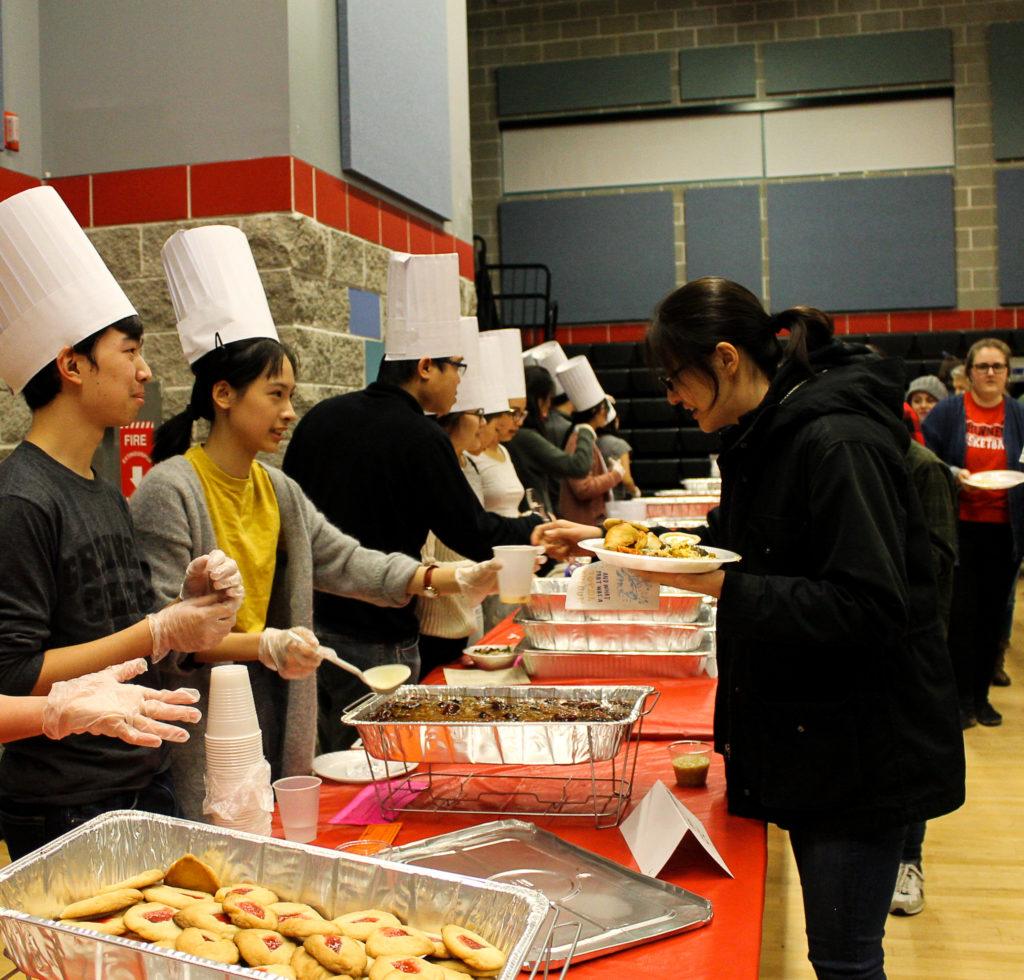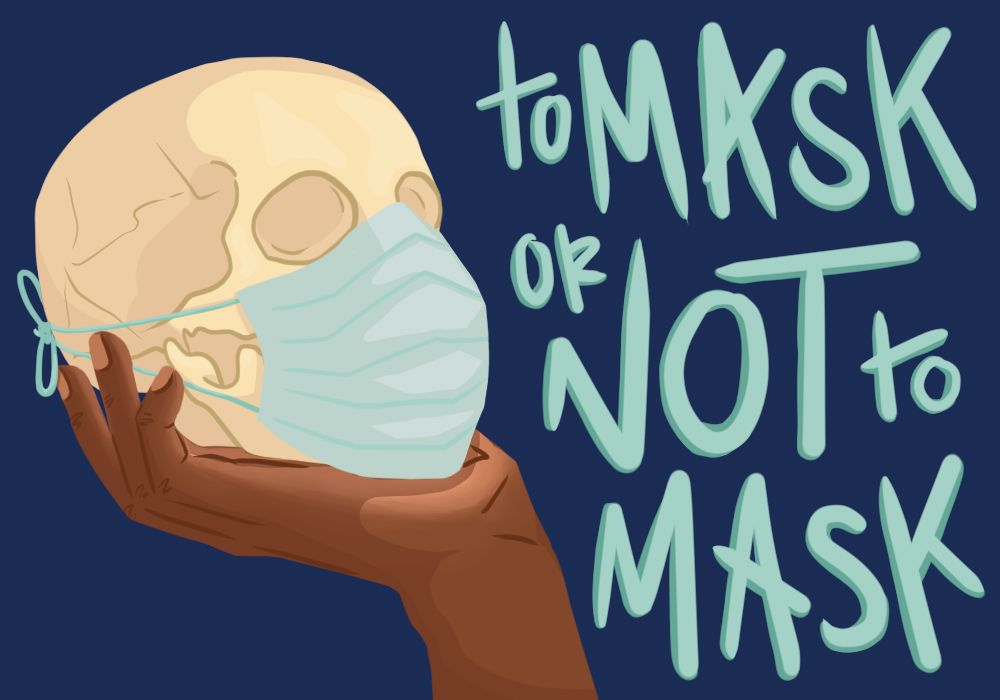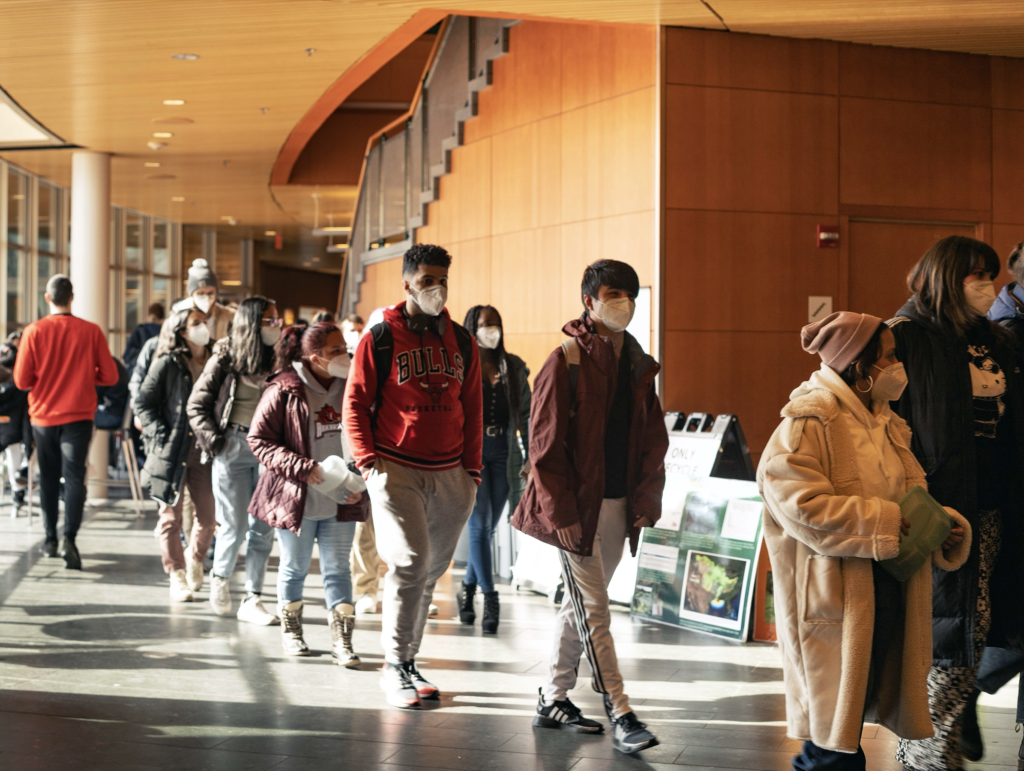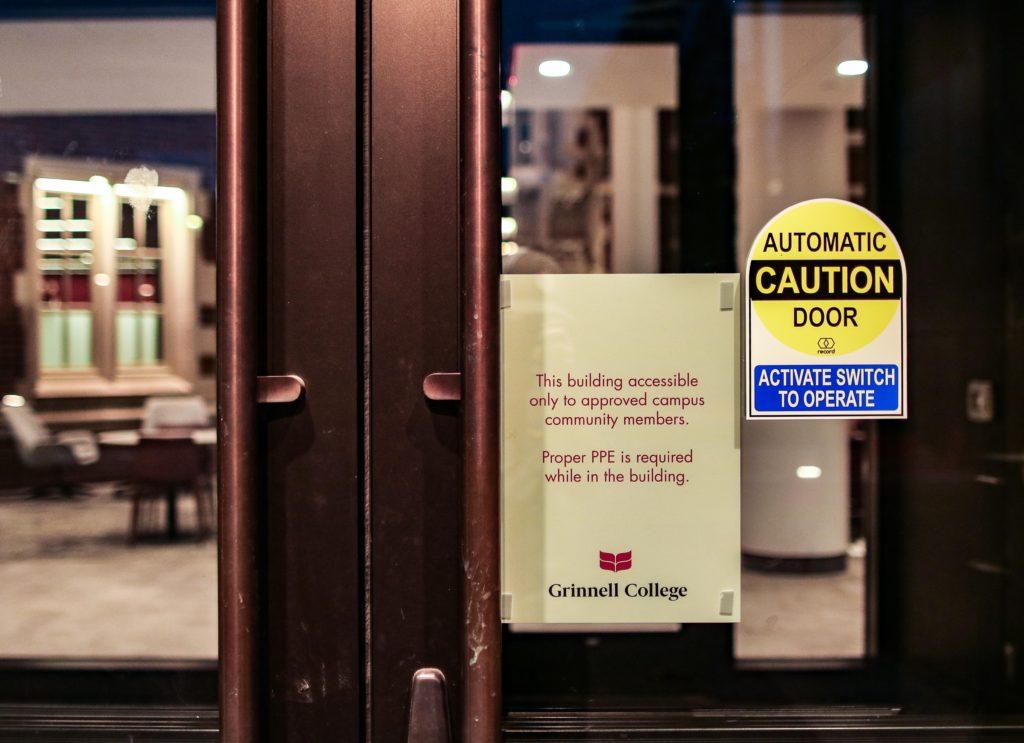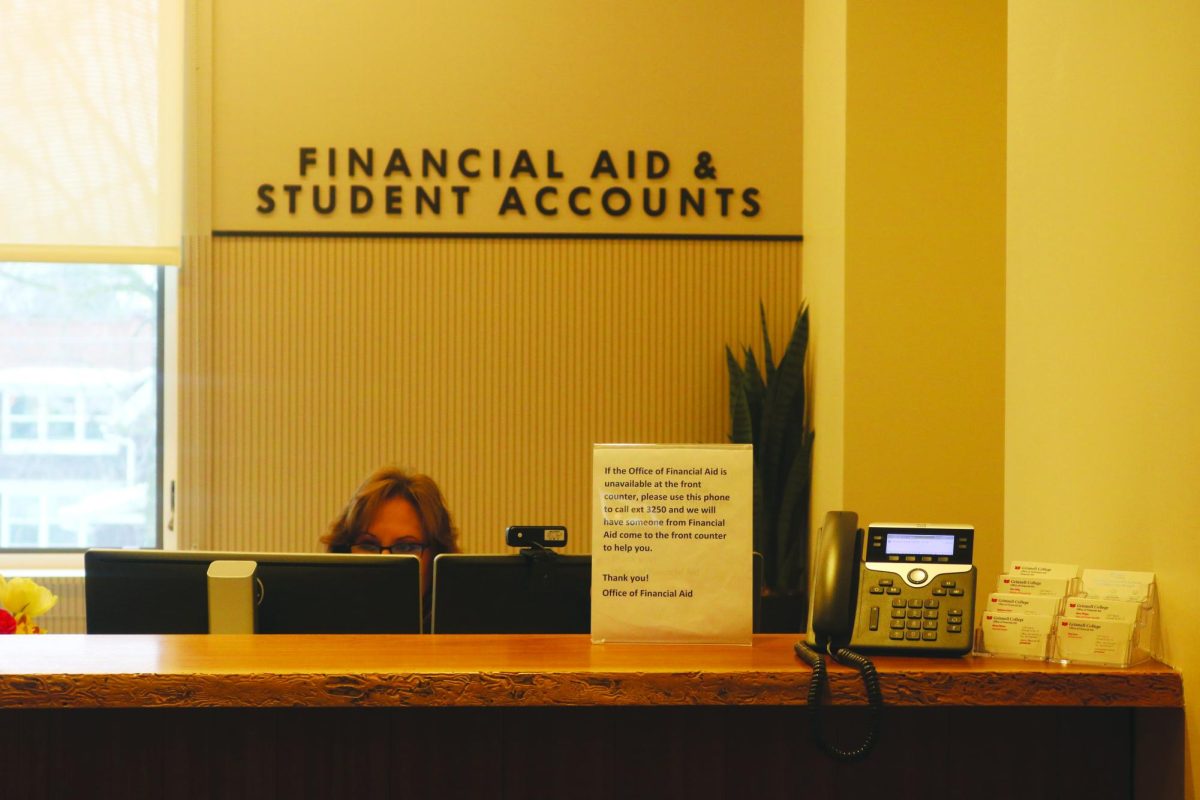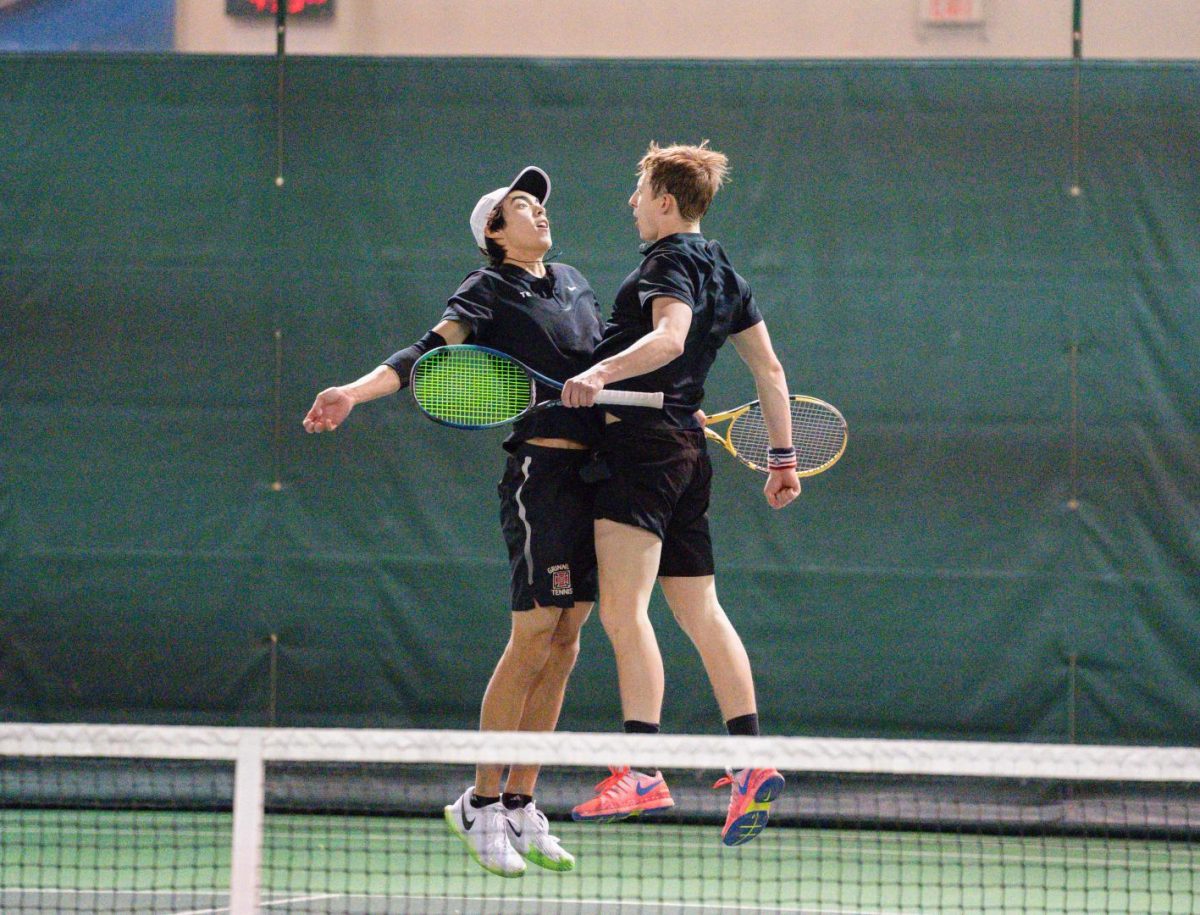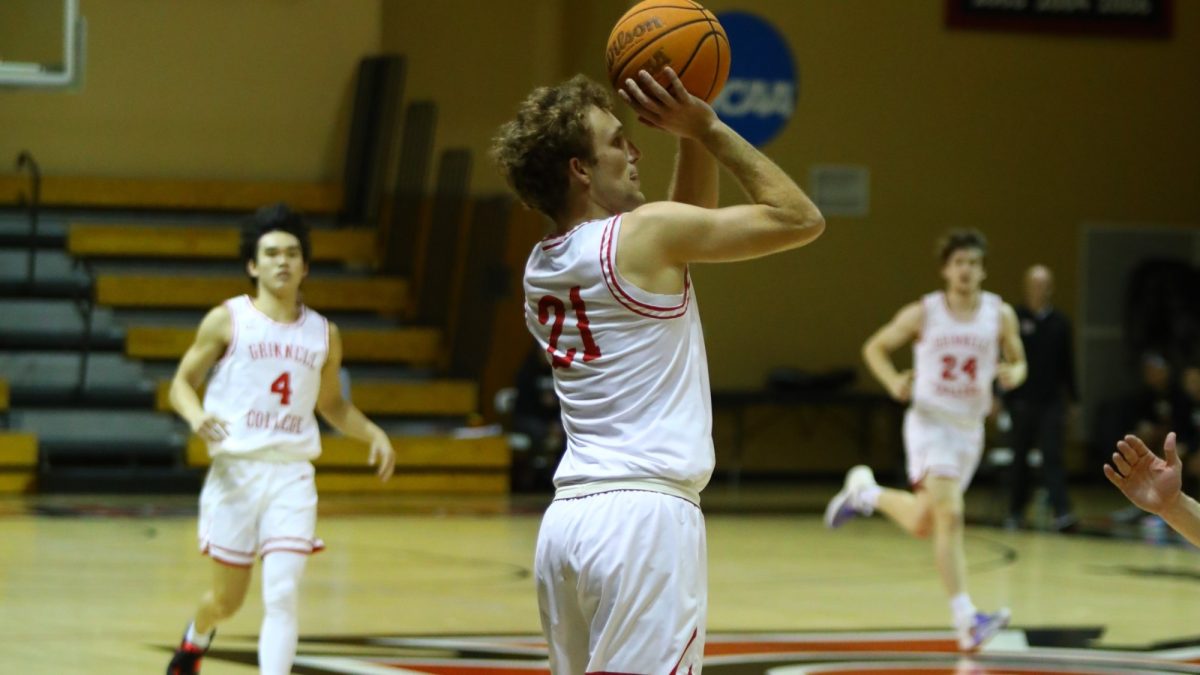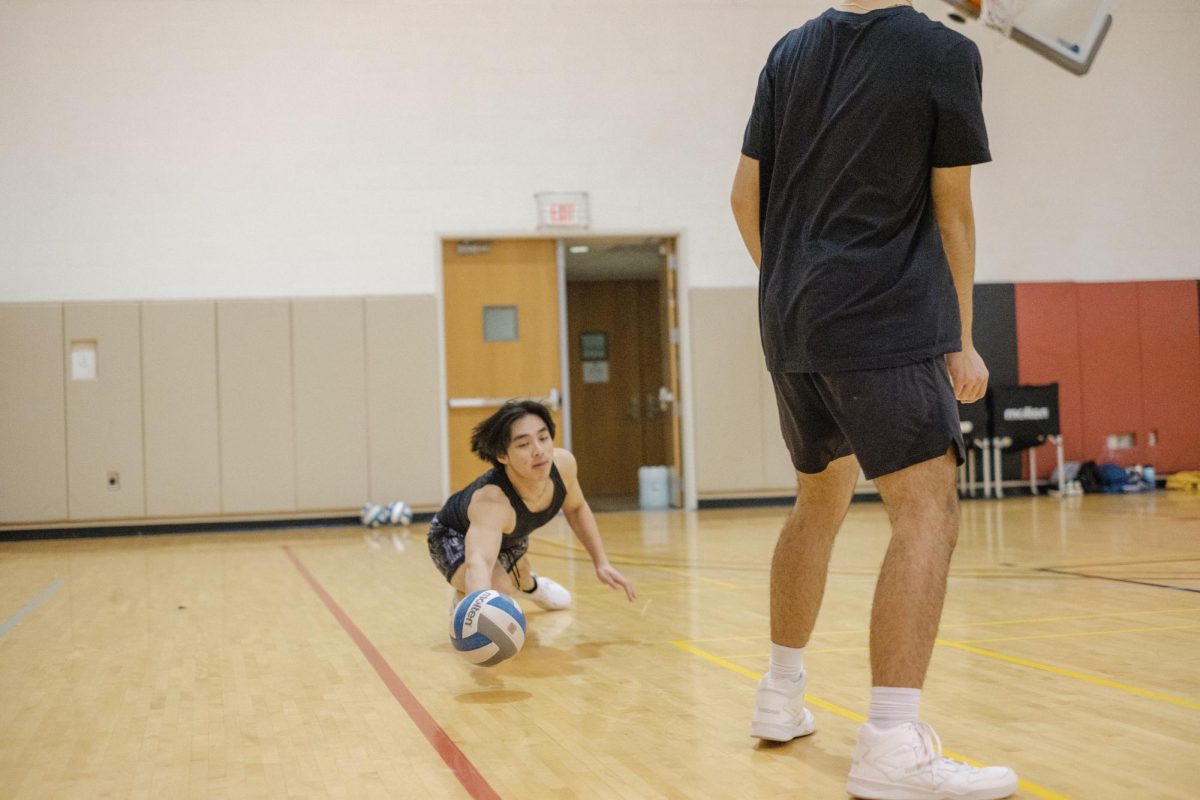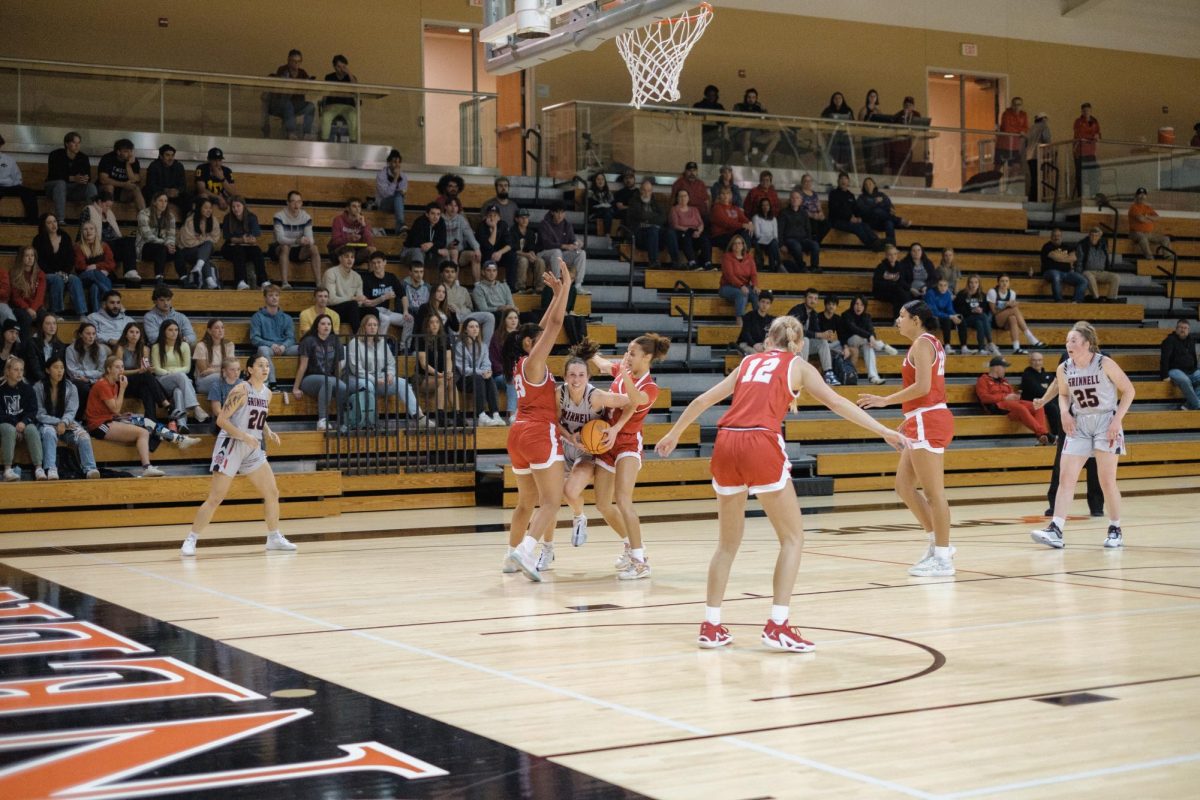International students across the United States have found their security, education and employment opportunities threatened after Immigration and Customs Enforcement (ICE) announced new regulations prohibiting them from staying in the U.S. while enrolled in a fully online courseload during the upcoming fall semester. The directive has intensified the uncertainty and fear felt by international students at Grinnell, who make up 20 percent of the student body, during the COVID-19 pandemic.
The announcement, released by the Student and Exchange Visitor Program (SEVP) on Monday, July 6, states that “F-1 and M-1 students attending schools operating entirely online may not take a full online course load and remain in the United States.” F-1 visa students are enrolled in academic programs and M-1 visa students pursue vocational coursework.
The measure also stipulates that F-1 students at schools planning for hybrid models can maintain visa status and remain in the U.S. as long their institutions certify to SEVP that each international student is taking the minimum number of courses online required for degree completion.
Students enrolled in online-only academic programs at any point during the fall semester “must depart the country or take other measures, such as transferring to a school with in-person instruction to remain in lawful status.”
As the number of COVID-19 cases in the U.S. surges just over a month before many colleges and universities begin the fall semester, the new ICE guidelines force international students and institutions into an impossible decision: enforce in-person instruction at odds with recommended public health regulations or require international students to leave the country.
In an email to the Grinnell community on Wednesday, Acting President Anne Harris reaffirmed the College community’s support for international students and commitment to opposing the directive. She wrote that the restrictions could “severely, and sadly, limit the opportunities of international students to enroll in U.S. colleges and universities, and thwart the educational mission of U.S. higher education.”
“A punch to the gut” for institutions and international students
“Recent guidance felt like a punch to the gut for students and institutions across the country,” said Karen Edwards, associate dean of the College and director of international student affairs.
Since the Monday announcement, the Office of International Student Affairs (OISA) has been working with peer institutions, partners across campus and an immigration attorney hired by the College to implement the best course of action to support Grinnell’s international student community.
ICE’s announcement has placed institutions like Grinnell into the near-impossible position of weighing community health with students’ education, according to Edwards. “Grinnell’s number one priority is health and safety. Balancing that with academic continuity and support for students is super challenging, and this directive has placed enormous pressure on schools to fully open and operate. We don’t think that is a good idea,” she said.

The impact of the new regulations on Grinnell’s international students is contingent on the College’s plan for a hybrid model during the fall semester, which will consist of a mixture of in-person and online courses.
“As a hybrid institution, our students that are inside the country need to come back to campus, and we need to create an infrastructure to meet the requirement that not all of their courses be online. I think we will be able to navigate that for those students,” said Edwards.
Edwards stressed that the implications of the SEVP announcement vary widely from student to student, with students who are currently outside the U.S. being in the most precarious position. “But we’re working on some good thoughts there too,” she said.
On Wednesday, the OISA published guidance for international students according to their class year, visa status and whether they are currently inside or outside the United States. In an effort to support students outside the country, Dean of Students Ben Newhouse has reopened the petition process for on-campus residence approval for fourth-year F-1 visa students facing the risk of losing post-graduation employment benefits.
Considering the possibility that the College could be forced to switch to a fully online program mid-semester, OISA has asked international students outside the U.S. petitioning to return to recognize that there is still some risk.
“Per the Broadcast Message, if a school goes entirely online, whether we start that way or whether we move there later, all international students are expected to leave the country, right away. This is simply not possible for many [due to travel bans],” said Edwards.
“It’s scary in this moment when all of that is threatened”
For many international students, the SEVP changes create yet another precarious situation in addition to the numerous travel bans that have limited travel to and from the U.S. during the COVID-19 crisis.
International Student Organization (ISO) President Puravi Nath ’21 has been processing the news while providing support for the international student community at Grinnell.
“The travel ban was already pretty bad and that was something we were already stressing about and this suddenly happened,” Nath said.
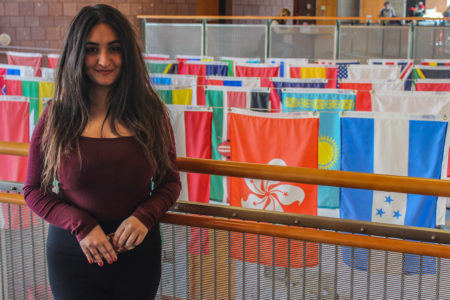
Nath, a student from Bangalore, India, has been away from home for more than a year and is unsure when she will be able to return. According to Nath, many international students share her anxieties about travel bans, families, graduation and degree completion.
Nath is especially concerned about students who plan on applying for Optional Practical Training (OPT) authorization, which allows international students to be employed U.S. for one to three years after graduation. Fourth-year international students outside the U.S. may be at risk of losing that opportunity.
“It’s probably the worst on people outside of the U.S. who are seniors … because they might lose their OPT,” said Nath. “I can feel how freaked out they are. It’s just not fair.”
ISO Secretary Vidush Goswami ’21 also expressed concern about the impact of the SEVP measure on students located outside of the U.S. planning to apply for OPT. “I can only imagine how stressful it must be for them,” said Goswami, who is from New Delhi, India and Rotorua, New Zealand. “They’re just stuck in this limbo.”
“My biggest concern is all the effort and time and money that everyone put into their applications to come to the United States and get a visa, to get accepted to Grinnell. People put in the work over the years at Grinnell. It’s scary in this moment when all of that is threatened.”
Goswami and Nath both said they took comfort in the work that OISA has been doing to advocate for international students. In addition to Edwards, OISA staff includes Assistant Director of International Student Affairs Brenda Strong and International Student Advisor Mollie Ullestad.
“I know they’re as worried about us as we are. I know they’re going to do so much for us – they always do. They care as if they were us,” said Nath.
“You can’t just announce a rule that changes everything”
The ICE directive was swiftly challenged on Wednesday in a lawsuit filed by Harvard University and the Massachusetts Institute of Technology (MIT) against the Department of Homeland Security and U.S. Immigration and Customs Enforcement. The lawsuit seeks an emergency order to bar the federal agencies from enforcing the modified SEVP guidelines. Harvard University President Lawrence S. Bacow called the guidelines “cruel” and “reckless.”
On July 11, Acting President Harris signed an amicus brief filed by the Presidents’ Alliance on Higher Education and Immigration in support of Harvard and MIT. The brief was signed by180 other college and university presidents to voice their opposition to what Alliance Executive Director Miriam Feldblum described as “another unfortunate assault by the administration against immigrants and higher education” in a recent press release.
Philip Curtis, co-managing partner at business immigration law firm Chin & Curtis LLP, explained that the new directive is being challenged because it violates the Administrative Procedure Act (APA) of 1946.
“Basically, the APA says that if the administration wants to make a rule which changes substantive rights and responsibilities, it has to do so for a reason, and it has to do so according to a certain process,” said Curtis. “If you’re going to change the rules that govern how we behave, you have to publish your intent to do that, and you have to give people a period of time to comment about it, you have to deal with those comments. You can’t just announce a rule that changes everything.”
According to the complaint filed, the restrictions fail to consider the public health of college communities amid the COVID-19 pandemic, lack reasoned justification and violate APA requirements for a notice-and-comment period.
“The effect—and perhaps even the goal—is to create as much chaos for universities and international students as possible,” the plaintiffs wrote of the new restrictions.
“It doesn’t explain why [they’re] doing it, even though the COVID-19 situation seems to be getting worse,” said Curtis. “The action they’re proposing to do is not related to the problem they’re trying to solve.”
The action they’re proposing to do is not related to the problem they’re trying to solve – Phil Curtis, Chin & Curtis LLP, on the Trump administration.
As President Trump has called on U.S. schools to reopen and scorned Harvard University’s plan to hold fall courses online, some legal experts and university officials suspect the SEVP changes were politically motivated.
“The president, by announcing this, is trying to force them to do what he wants them to do. … He wants things to look normal again,” said Curtis. “There’s a very anti-immigrant bias and this is part of the program to reduce immigration to the United States irrespective of the personal or economic cost of doing so.”
Despite the shock and uncertainty following ICE’s announcement, Curtis is hopeful that the lawsuit will effectively bar the guidelines from taking effect. “I’m optimistic that the federal courts will find that the administration has abused its discretion by announcing this rule,” he said. In a hearing on Friday morning, Massachusetts federal judge Allison D. Burroughs put off the decision until a second hearing which will take place on Tuesday.
Edwards expressed her support for the decisive action against the policy on the part of Harvard and MIT. The legal challenge is also providing a sense of hope among international students in the midst of the week’s shock and chaos.
“Everyone’s hope is that [the lawsuit] has some sort of effect,” said Goswami.
Nath shared similar sentiments. “It just makes me feel like so many people believe in us and support us,” she said. “We are all in this situation together. Many of us at Grinnell, hundreds of us in the country.”




















































